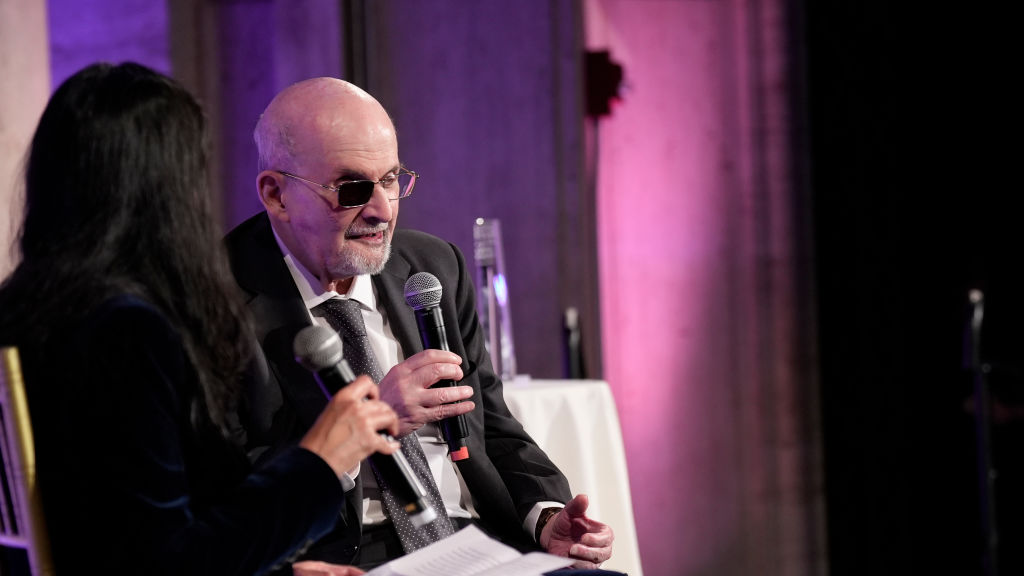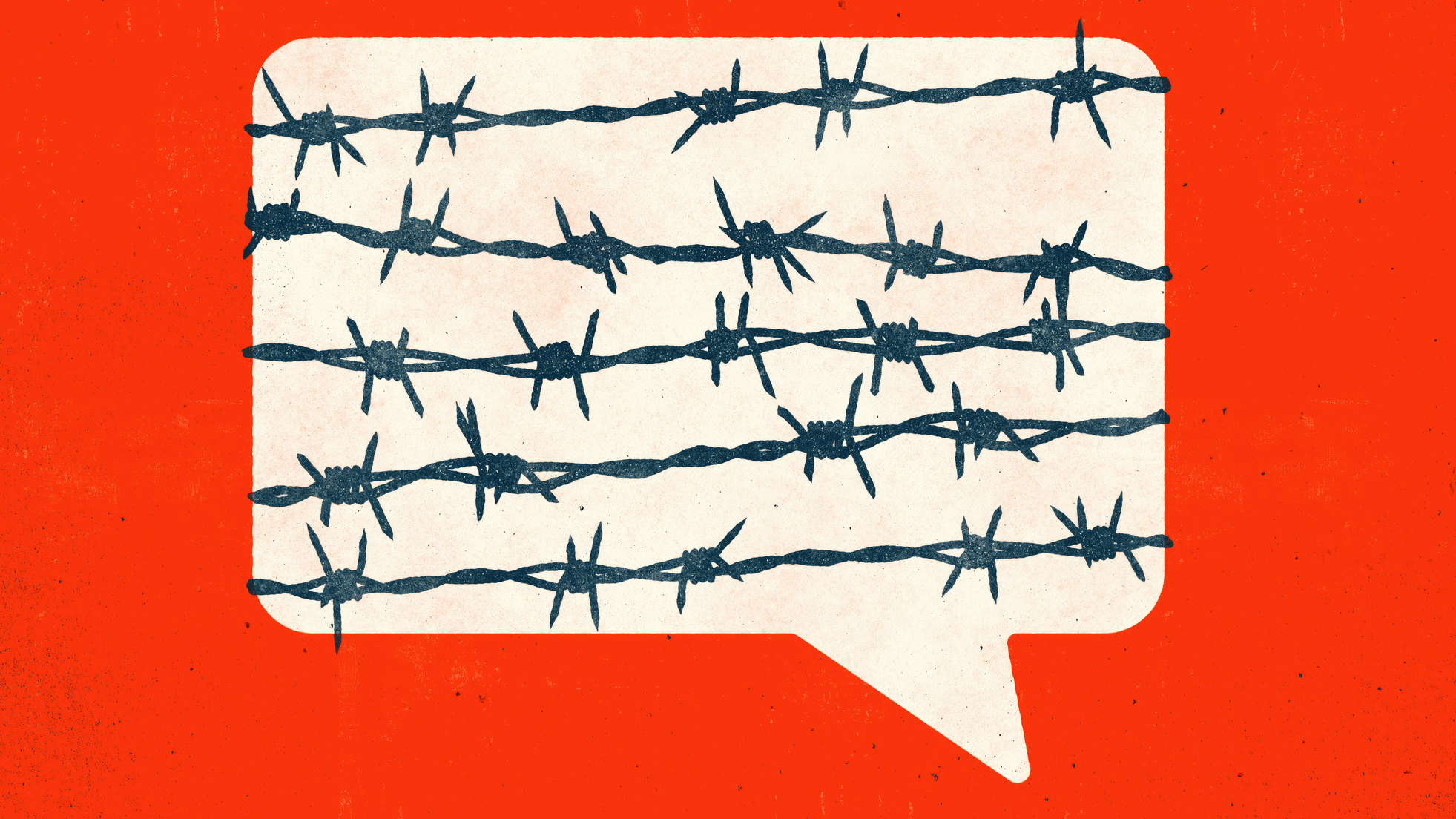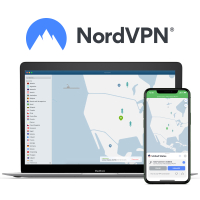Salman Rushdie's censorship interview is a reminder to use a VPN
The VPN is mightier than the sword, especially when it comes to beating censorship in the digital age.

In his first interview since being attacked at knife-point over his book The Satanic Verses, Salman Rushdie spoke to CBS about the dangers of modern censorship. Rushdie told all during a 60 Minutes segment, from the devastating 2022 attack that left him critically wounded to the dangers of softening attitudes towards censorship.
The word censorship carries a grim Orwellian tang, doesn't it? Restrictions, bans, blocks, and worse—it's just a bad time. Rushdie, however, claims that popular opinion about censorship is experiencing an alarming shift amongst today's young people.
He noted that it's everywhere, imposed by all sides of the political spectrum. It's not just the iron-fisted tool of the world's most oppressive governments or particularly zealous right-wing political parties. Nope, now, it's crept into the left-wing consciousness.
"The thing that's different now is that it's also coming from progressive voices. There are progressive voices saying that certain kinds of speech should be not permitted because it offends against this or that vulnerable group."
Salman Rushdie
It's left me wondering if we should be clamoring for more censorship in our lives when existing instances are so devastating. Should we really be offering up our digital freedoms on a platter? Rushdie's warning will linger in the ears of all privacy-minded folks: "To support censorship in theory on behalf of vulnerable groups is a very slippery slope. It can lead to the opposite of what you want." Ironically, it can be seen as both supporting and opposing Karl Popper's paradox of tolerance. While we should indeed be intolerant of intolerance, censorship is merely papering over the cracks in a way that risks oppression, rather than progression.
Tracking censorship around the world
Rushdie's 60 Minutes appearance immediately struck a chord with me because, as part of the VPN team here on TechRadar, I'm constantly seeing restrictions pop up across the globe.
Sometimes, these blackouts happen just before an election season, as was recently the case in Pakistan, Senegal, Turkey, and Russia. Censorship can also lead to social media platforms becoming totally unavailable for an entire country—like Brazil, where the ever-infamous Elon Musk recommended that anyone wanting to access X (which, in my heart, is still Twitter) should recruit the help of a VPN to do so.
As you can imagine, these interruptions have a massive impact on the people in these countries, and it's not unusual for them to sever vital digital lifelines connecting them to friends and family. Governments shake off rebuttals, however, claiming that censorship efforts are enforced under the auspices of protecting the population. Just take a look at the situation in Spain, where High Court judges decided to ban Telegram to, apparently, curb the tide of piracy.
Get daily insight, inspiration and deals in your inbox
Sign up for breaking news, reviews, opinion, top tech deals, and more.
In reality, bans and blackouts make it much harder for us all to communicate, and sometimes impossible for journalists and activists to do their work safely. They're also a grim obstacle in the way of democratic votes.
In fact, in 2023, Top10VPN discovered that 50% of government internet outages were also connected to human rights abuses, limiting freedom of assembly.

How to overcome censorship
When faced with these massive threats, it's easy to slip into apathy or adopt a well, we're doomed mantra. After all, what can we, the world's most average denizens, do about our governments deciding to whack our internet access and social media platforms with the ban hammer?
The good news is that organizations and agencies are rising up to fight the fight for privacy. Germany, for example, is pushing hard to make encryption a legal right, and in the States, the APRA is eager to get online privacy protected by federal law.
VPNs are a must-have for folks living with digital restrictions—but they know how to have fun. The best streaming VPNs can also unblock Netflix, BBC iPlayer, and regional streaming platforms from around the world.
If you're the kind of person who prefers to control your own destiny (and data), then you'll want to invest in a VPN—and the good news is that it's way easier to pick up a VPN than it is to sit on your hands and wait for our governments to see the light.
I know that there'll be some readers who, upon seeing the term, will wonder "What is a VPN?". Maybe you haven't used one before or have been put off by all the techy jargon that tends to accompany them on provider sites and expert articles. I get it, totally, but the best VPNs keep it simple. All you'll need to do is pick a provider and a plan, install the app on whichever device you like, and hit the big "Connect" button. Then, voilà, your VPN will encrypt your web traffic to keep nosy third parties from spying on your browsing sessions—which they shouldn’t be doing in the first place, of course.
Try the best VPN in 2025: NordVPN
NordVPN ticks all of these boxes for me and currently sits at the number one spot in our overall VPN rankings. NordVPN is battle-tested and super secure, has its very own built-in ad blocker and malware protection, and, perhaps best of all, is so easy to use that you'll be up and running in just a few clicks.
▶ Find out more in my NordVPN review.
A VPN will also make short work of most censorship attempts, too, thanks to their almighty IP spoofing power. Let's say you're in Pakistan and want to get around the blackout keeping you from your favorite sites, services, and messaging platforms. You'd open up your VPN app and connect to a server in a country where the blackout isn't in effect—then, the sites you visit will be fooled into thinking you're in that same place physically, too, and restore your online freedoms.
However, if you're serious about beating censorship, there are a few criteria you'll need to add to your VPN wishlist. First and foremost is obfuscation technology which hides the fact that you're using a VPN in the first place, and a kill switch comes in handy for preventing data leaks that could give away your identity. Finally, stick to no-logs VPNs that aren't interested in keeping records of your activity… or handing them over to whoever comes knocking.

River is a Tech Software Editor and VPN expert, helping take care of cybersecurity content on TechRadar, ranging from reviews, buying guides, and must-have VPN deals. River's expertise in the cybersecurity field opened their eyes to the startling amount of online snooping we accept into our daily lives. Now, River is committed to fighting for your right to digital privacy by shining a light on its biggest threats – and helping readers safeguard their data with the help of a VPN. Surfshark is River's favorite VPN, and they use it every day to keep their most sensitive details out of the hands of third-party trackers.
